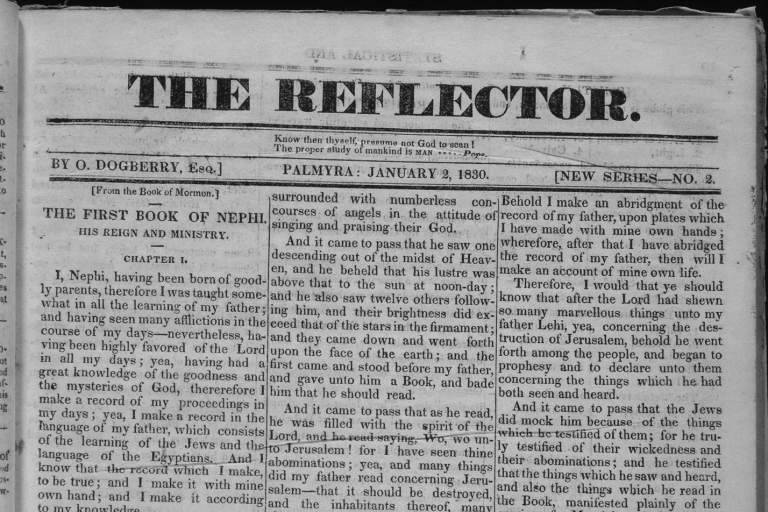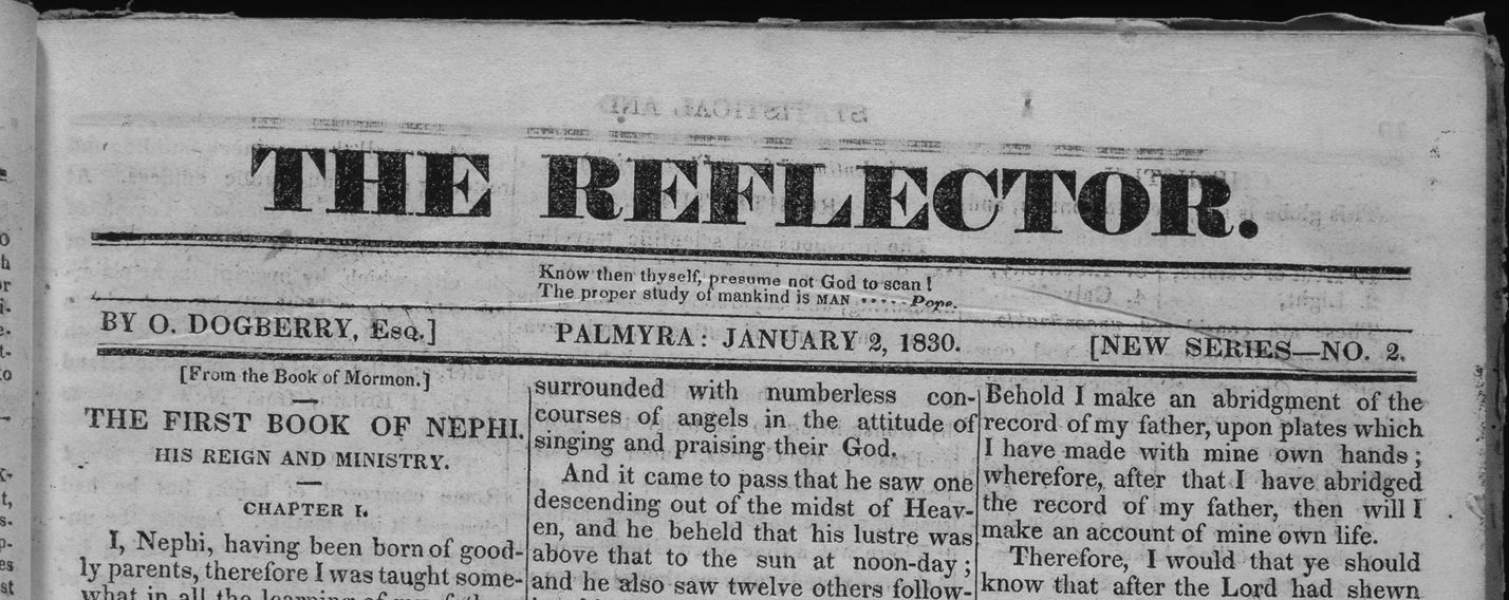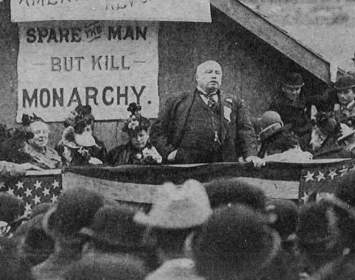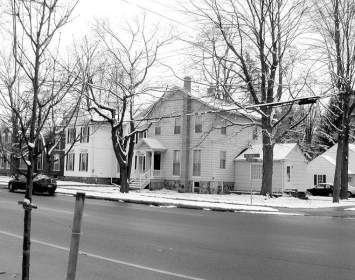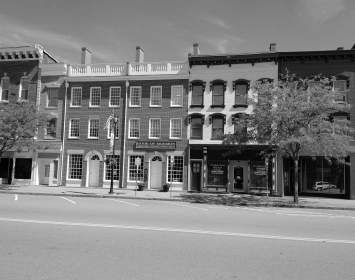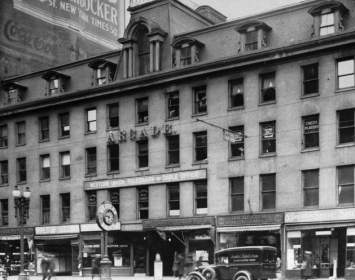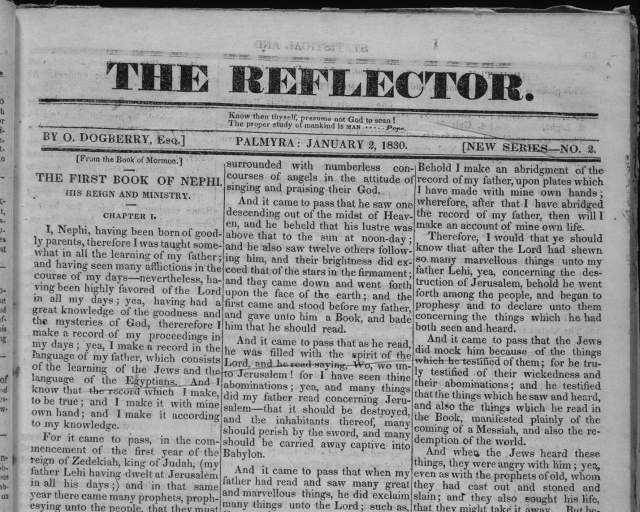
In Palmyra, Obadiah Dogberry (a pseuodnym adopted by Abner Cole, 1783–1835) published The Reflector, a regional freethought newspaper, from September 1829 to March 1831. Dogberry produced his paper in the shop of Palmyra printer Egbert B. Grandin. Grandin published the local newspaper, the Wayne Sentinel. (Palmyra is located in Wayne County.) At that time Grandin was also engaged in printing the first edition of self-styled prophet Joseph Smith’s Book of Mormon. It was an enormous project for a small printer. The book would contain thirty-seven "forms," each one a large sheet that could be cut and folded to become one signature in the finished book. Typesetting and printing began in September 1829 and continued through mid-March 1830.
Dogberry rented Grandin’s shop on evenings and weekends. Alone there after hours, he could peruse the most recently printed pages of the Book of Mormon and even appropriate Grandin’s set type to reprint long passages in The Reflector. Dogberry issued the earliest published criticism of the Book of Mormon (or as he called it, "Jo. Smith’s Gold Bible"), quoting from the new "scripture" at length without permission.
In the Reflector of January 2, 1830, Dogberry published his first Book of Mormon excerpt: First Nephi 1:1–2:3. First Nephi 2:4–15 followed on January 13. An “extra” issue on January 22 presented an unauthorized “Extract from the Book of Alma, Chapter XX.” Along the way, Dogberry generated some 16,000 words of commentary challenging Book of Mormon claims at length and engaging in pointed satire. For samples see here and here. Despite its heated rhetoric—in one editorial, Dogberry called Smith a “spindle shanked ignoramus” and called the Book of Mormon “one of the most ridiculous impostures, ever promulgated”—many of Dogberry’s objections to the Book of Mormon are upheld by secular critics today.
According to Lucy Mack Smith, mother of the Mormon "prophet," late in January 1830 Joseph Smith confronted Dogberry at the print shop, demanding an end to unauthorized printing of Book of Mormon passages in The Reflector. Dogberry is said to have challenged Smith to a fistfight. Smith declined, the conflict was arbitrated by unknown parties, and Dogberry printed no more “pirate” Book of Mormon excerpts.
The pseudonym "Obadiah Dogberry" is believed to refer to Obadiah, a minor Old Testament prophet, and to Dogberry, a comic constable in Shakespeare’s Much Ado about Nothing.
Abner Cole (Dogberry’s real name) had been a longtime Palmyra resident, active in community life despite being an outspoken village atheist. He served as justice of the peace in Palmyra from April 1814 to April 1815 and as an overseer of highways from April 1816 to April 1817. In 1818, he was elected constable; for unknown reasons the town meeting abruptly replaced him. As early as 1816, Cole and Joseph Smith both lived on West Main Street in Palmyra. Cole would have been in his thirties, while Joseph a boy of ten. They may have become first acquainted at that time.
The Reflector discontinued publication with the issue of March 19, 1831, citing difficulty in persuading subscribers to pay their renewals. Subsequently, Dogberry moved to Rochester, where he edited another freethought paper, the weekly Liberal Advocate, for almost three years. This paper was written against "superstition and ignorance," and in it Dogberry claimed that ignorance, superstition, and bigotry were fighting losing battles (Liberal Advocate, March 10, 1832). The Liberal Advocate, too, succumbed to declining renewals, publishing its final issue in November 1834.
Eight months later, on July 13, 1835, Dogberry/Cole died in Rochester.
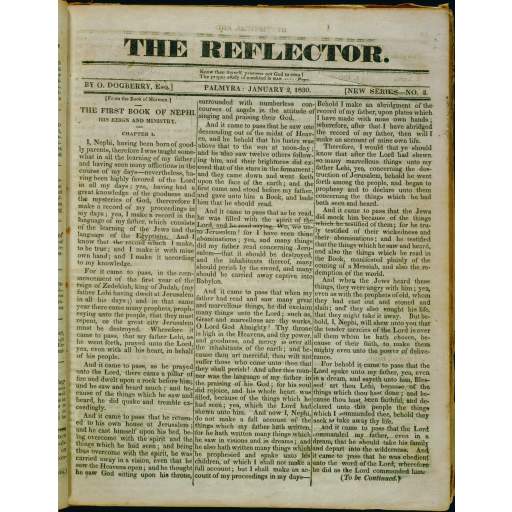
Palmyra Reflector
An issue of the Palmyra Reflector featuring an unauthorized excerpt from the Book of Mormon.
Associated Causes
Associated Historical Events
Book of Mormon First Criticized by Obadiah Dogberry
January 2–22, 1830
